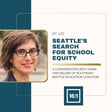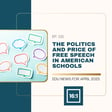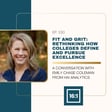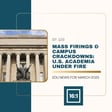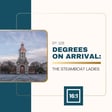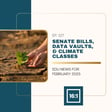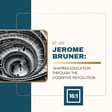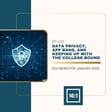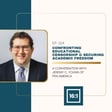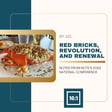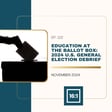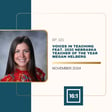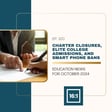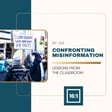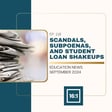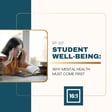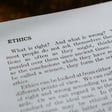
Schooling Without School: Free Schools, Democratic Schools, and the Unschooling Movement
Education News Headline Roundup [00:05:22]
- University of Florida President Ben Sasse announced his resignation from his presidential position effective July 31, 2024, citing the need to focus on his wife's health and family responsibilities.
- ACT Education Corp has announced changes to the ACT format and length as the company transitions from a non-profit to a for-profit entity and grapples with the effects of COVID and fluctuating interest in test-optional admissions policies.
- 2U, Inc., a prominent, Maryland-based online education company, has announced that it is filing for Chapter 11 bankruptcy protection. This decision follows significant financial struggles, including mounting debt of close to $1 billion and declining revenues.
Schooling Without School: Free Schools, Democratic Schools, and the Unschooling Movement [00:13:00]
Alternative educational models, particularly self-directed learning approaches like free schooling and unschooling, have gained traction post-COVID-19. These models focus on tailored educational experiences, addressing individual student needs and interests, and often stem from diverse counter-cultural ideologies. Historical influences include Socrates, Plato, Rousseau, and Dewey, and significant figures discussed include A.S. Neill, founder of Summerhill School, and John Holt, advocate for homeschooling and unschooling. Both critiqued traditional schooling and promoted student autonomy, though their methods and reception are varied.
Free schooling is characterized by significant student autonomy, democratic governance, voluntary class attendance, and a focus on self-directed projects and experiential learning. Notable examples include Summerhill in the UK and Sudbury Valley School in Massachusetts. Unschooling posits that children learn best through self-directed education without formal classes or curricula. It emphasizes student-led learning, everyday experiences as educational opportunities, and a non-compulsory structure. Parents act as facilitators rather than teachers.
This episode examines criticisms, such as potential academic gaps and socialization challenges, and discusses the suitability of these sometimes-radical student-led models for different learners, including those with disabilities. Socioeconomic factors affecting the feasibility of homeschooling and unschooling are also discussed. Post-COVID-19, remote work opportunities have increased the feasibility of these models, but socioeconomic status remains a significant determinant of access to resources and opportunities for self-directed learning.
Sources & Resources:
The SAT Has Changed: Here's What to Know
The ACT’s private equity takeover and the future of testing
During test-optional college admissions, exam-prep companies still thrived
